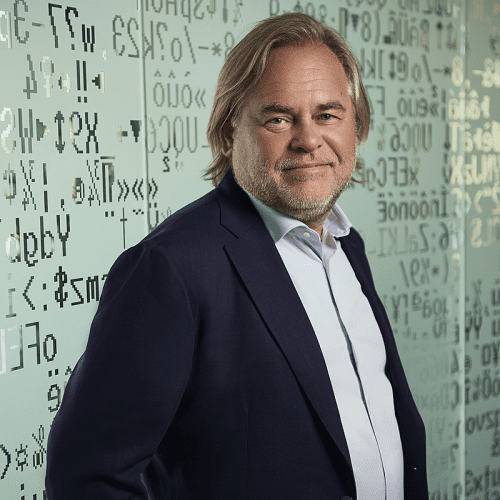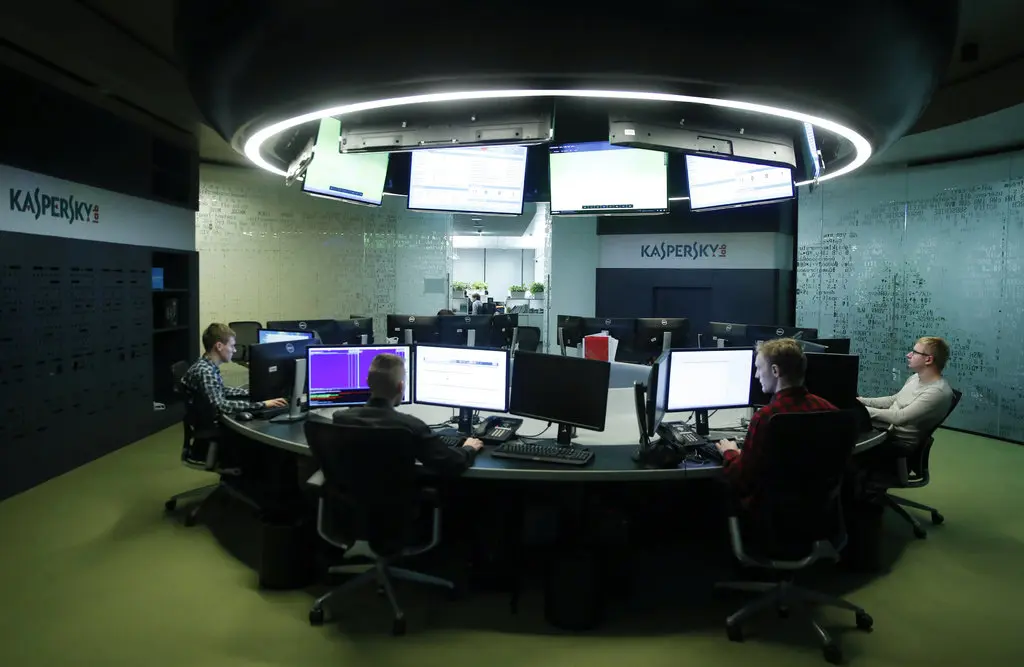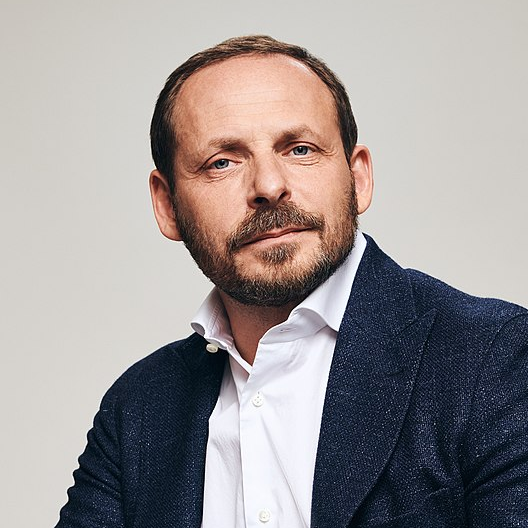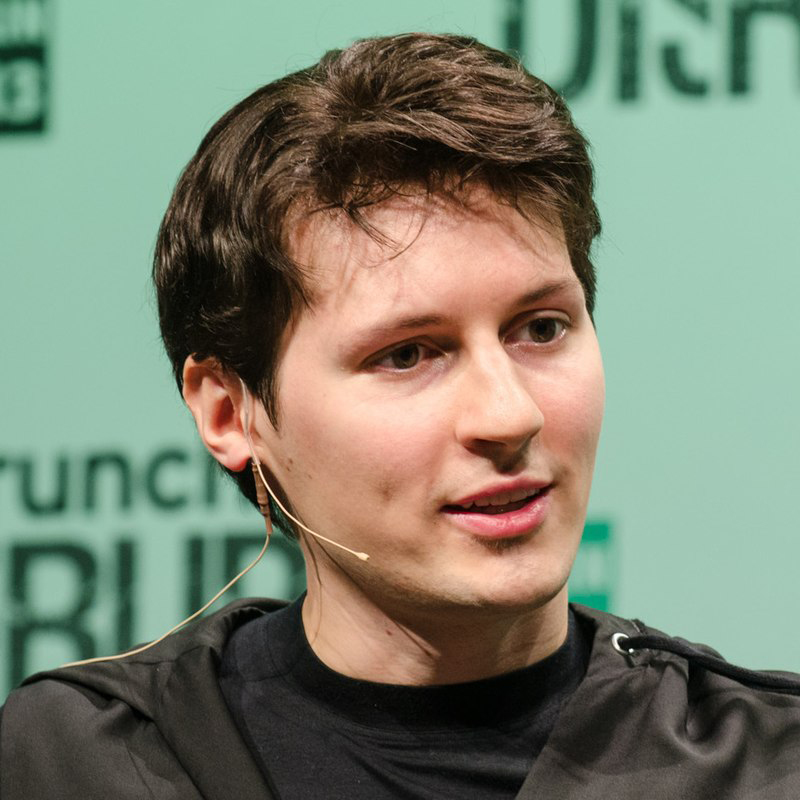Famous for
- Founder of Kaspersky, one of the world’s largest private cybersecurity companies, information security expert and one of the richest IT businessmen in Russia.
Assets
- Eugene Kaspersky owns about 90% of Kaspersky, one of the world’s largest private IT security companies. The company’s revenue for 2022 was $752 million (about 51.13 billion rubles). Kaspersky’s solutions are used by 400 million customers worldwide.
Interests and hobbies
- Kaspersky is passionate about Formula 1 and his company has supported the Ferrari team in the past. In 2022, Ferrari dropped Kaspersky as a sponsor and the Kaspersky logo was removed from the team’s cars and official website.
- Kaspersky travels extensively and writes about his travels on his blog. He is also the author of the books Travel Notes, Meet the New Year in the South!, Machu Picchu & Muchas Pictures, and The Top 100 Places in the World You Really Must See.
Professional history
Eugene Kaspersky was born on 4 October 1965 in Novorossiysk, USSR. He then moved with his family to the Moscow Region and studied at a mathematical boarding school, where he met his future business partner Alexey De-Monderik.
In 1991, he graduated from the Technical Faculty of the KGB Higher School in Moscow (now the Institute of Cryptography, Communications and Computer Science of the FSB Academy). During his studies, he worked in research institutes under the USSR Ministry of Defence, where he developed his first antivirus programme to combat the Cascade virus.
He served in the army, retiring with the rank of lieutenant colonel.
Between 1991 and 1997, he headed a group of employees at the KAMI Information Technology Centre, where he developed AntiViral Toolkit Pro (which later became Kaspersky Antivirus). In 1994, the software won a competition at the University of Hamburg and drew international acclaim. In three years, its sales grew to $1 million (about 5.9 billion rubles at the time, before the 1998 redenomination).
In 1997 he founded Kaspersky with his wife and colleagues.
Around the same time, he divorced his wife, who continued to work for the company, promoting it on the Russian and international markets. Under her leadership, an office was opened in the UK in 1999, followed by offices in Japan and China in 2003.
Kaspersky led the company’s antivirus research until 2007, when he became CEO. His former wife and co-founder left the company in 2011.
In 2007, Kaspersky starred in the Russian TV series Network, playing the founder of a school for programming and IT security.
In 2009, Kaspersky appeared in a commercial for its antivirus products alongside Jackie Chan. According to media reports, the actor was paid about $1 million (25 million rubles at the time).
That same year, Kaspersky joined the Civic Chamber of the Russian Federation, an advisory body to the government.
In 2011, Eugene Kaspersky’s 21-year-old son was kidnapped for ransom. The media reported that the kidnappers were demanding €3 million (about 120 million rubles) for his release. They were arrested when they went to collect the ransom, and Kaspersky’s son was unharmed.
One of the kidnappers was an active employee of the Russian Federal Security Service, and after the incident Kaspersky cancelled its IPO plans and cut ties with foreign investors. As a result, some media published information implying that the case had been organized by Russian intelligence services in order to gain influence over Kaspersky.
In 2012, Kaspersky received an honorary doctorate from the University of Plymouth, UK.
In 2015, Kaspersky’s company was subjected to Ukrainian sanctions.
In 2017, the US banned government agencies from using Kaspersky products, followed by UK ministries and later Germany. The reason was suspected links between the company and Russian intelligence. In 2022, the US put Kaspersky on its list of companies that pose a threat to national security.
In 2022, Kaspersky was added to the sanctions lists of Poland and Ukraine.
In the same year, he joined the Expert Council under the Russian government.
Deals and ventures
- In 2013, Kaspersky bought the Olympia Park business centre for $350 million (about 10.8 billion rubles) to be used as the company’s office.
- In 2014, Kaspersky bought Salvador Dali’s Triumphant Elephant sculpture for £446,500 (about 25.3 million rubles) to display in one of its offices.
- From 2019, Kaspersky announced its intention to buy a stake in the developer of the MyOffice platform, which has been touted as a Russian alternative to Microsoft Office and Google Docs. By 2022, Kaspersky owned 61% of the company, with a total value estimated at 5–10 billion rubles (about $73.5–147 million).
- In 2021, Kaspersky bought an 80% stake in telecom operator solutions developer Brain4Net from Rostelecom. As of 2018, the company was valued at 1.18 billion rubles (approximately $19 million).
- In 2022, Kaspersky co-founder and Eugene’s classmate Alexey De-Monderik sold his shares in the company for $50 million (about 3.4 billion rubles) and departed the company.
Achievements
- Russia’s richest IT businessperson in 2022, according to TAdviser. His fortune at that time was estimated at 110.78 billion rubles (about $1.629 billion).
- He has co-authored several patents in the field of information security software.
- In 2012, he was ranked 8th on Wired magazine’s list of “the world’s most dangerous people” for exposing US cyberweapons designed to spy on the Middle East and disrupt Iran’s nuclear programme.
- In 2012, he was included in Foreign Policy’s list of the 100 most influential thinkers.
- Recipient of the State Prize of the Russian Federation in science and technology.
- Recipient of the Chinese national Friendship Award for his contribution to the development of China’s information security industry and the Haihe Friendship Award.
- Recipient of the Armenian president’s award for his global contribution to the field of information technology.
- Author of the computer security book Computer Viruses in MS-DOS.
Criticism and disputes
- In 2015, Bloomberg published an article revealing that Kaspersky had been working closely with Russian intelligence since 2012, and that its managerial positions were held by individuals with ties to the intelligence services. In particular, it was reported that Kaspersky regularly attended the sauna in the company of these individuals.
- An investigation by Meduza in 2018 reported that Kaspersky’s company had an entire division overseen by the Russian intelligence services. In response, Kaspersky issued a major press release claiming that much of the investigation consisted of speculation and falsified information.
- A 2018 investigation by the New York Times detailed how Kaspersky had embedded tools in its software to spy on the US government.
- In 2019, Kaspersky attempted to sue three former employees who had set up their own company. They were accused of using Kaspersky’s intellectual property. The court dismissed the case, finding it lacked sufficient grounds.
- In 2021, Kaspersky lost a case against the Russian Federal Tax Service and was ordered to pay 41.6 million rubles (about $570,000) as a penalty for unpaid taxes.
- In 2023, Apple paid a fine of 906 million rubles (about $12 million) imposed by the Russian Federal Antimonopoly Service following a complaint by Kaspersky. The main allegation was that Apple had abused its position in the apps market.
Attitudes to Russian–Ukrainian conflict
In March 2022, Kaspersky wrote on X (formerly Twitter):
“We welcome the start of negotiations to resolve the current situation in Ukraine and hope that they will lead to a cessation of hostilities and a compromise. We believe that peaceful dialogue is the only possible instrument for resolving conflicts. War isn’t good for anyone.”
Community work
- Since 2008, Kaspersky has organized an annual international student conference called IT Security for the Next Generation, which unites the efforts of universities and the antivirus industry in the fight against cybercriminals and unleashes the potential of young talent.
- After receiving the State Prize for science and technology in 2008, he donated the monetary part of the prize – 5 million rubles (about $200,000) – to charity.
- In 2009, Kaspersky donated $418,000 (about 12.9 million rubles) to orphanages, and in 2010 donated $670,000 (about 20.1 million rubles).
- In 2017, Kaspersky opened the Kaspersky Mathematical Gymnasium, a completely free educational facility for schoolchildren.
- During the COVID-19 coronavirus pandemic, Kaspersky Lab provided more than 350,000 free licences for its corporate information security products to medical institutions around the world.
Additional information
Married, five children.
Source for information: Forbes.com, Bloomberg.com, Rbc.ru, Wired.com, Vedomosti.ru







